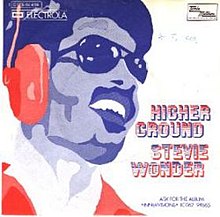This week’s Torah portion, Vaera, opens with Moses in a state of doubt and despondency. His initial challenge to Pharaoh only makes
things worse for the Israelite slaves, thereby provoking the enmity of the very
people whom God has tasked him to deliver. Understandably, then, Moses confronts the One
who called him to this deeply frustrating mission.
God’s response is, at first, most curious: “God replied to
Moses and said to him, ‘I am the Eternal One.
I appeared to Abraham, Isaac, and Jacob as El Shaddai, but my name,
YHVH, I did not make known to them.’”
What kind of answer is this? How
does it address Moses’ despair? What
does any of this have to do with God’s names?
Yet God’s words do, in fact, make sense—and offer
comfort—when we understand them through the lens of Moses’ first encounter with
the Divine at the Burning Bush just a few chapters earlier. In that section, God reveals to Moses the
related name, Ehyeh Asher Ehyheh, I will
be who I will be. To which Moses
humbly responds, “Who am I to go to Pharaoh?”
God replies: “I will be with you. . . And this shall be for you the sign
that I have sent you.” This exchange is
also a bit mysterious, for in the text, God never explicitly reveals to Moses
what the sign is.
Here Levi Yitzchak of Berditchev offers a brilliant reading. As Rabbi Lawrence Kushner puts it, “God does
give Moses a sign, says the Berditchever.
And it has been right there in plain sight all along. From his native humility, Moses cannot
imagine he is worthy of such a holy task.
This is why he says, ‘Whom am I that I should go to Pharaoh and lead the
Israelites out of Egypt?’ Precisely this
fear of inadequacy is the source of Moses’ true spiritual authority. It is not an expression of unworthiness; it
is a necessary qualification and precondition for the job of any would-be
Jewish leader.” In other words, Moses’ fear that he is unworthy is precisely
the sign that he is the right leader for the task. As Kushner notes, God effectively choses
Moses because he is able to contain his ego.
Now, in Moses’ hour of darkest anguish, God reminds him of
this source of strength. By proclaiming
the Divine Name, the Holy One reiterates to Moses: “I’m God, you’re not.” And this is a source of deep
consolation. Genuine humility is not
self-abnegation; it entails knowing our proper role in the larger drama playing
out around us. As Mussar teacher Alan
Morinis it: “No more than my place, no less than my space.” This knowledge brings comfort through a
realistic rather than exaggerated sense of responsibility.
For a contemporary expression of this wisdom, listen to
Steve Earle’s song, “God is God.” Earle—who
has often addressed pressing social issues in a profound prophetic voice—begins
by declaring, “I believe in prophecy.” He brings us back to the opening of Exodus,
adding,
I believe in miracles—
something burning in
every bush and tree.
We can all learn to
sing the songs the angels sing
Then Earle pauses, builds momentum, and delivers the kicker:
And I believe in God,
and God ain’t me.
This is the singer’s liberating insight. His belief in a Higher Power does not negate
his own strength; rather, by offering perspective, it gives him the security to
speak out as an activist. He continues:
I’ve traveled around
the world
Stood on mighty mountains
and gazed across the wilderness. . .
And as our fate
unfurls
Every day that passes
I’m sure about a little bit less.
Like Socrates, Earle recognizes that true wisdom starts with
acknowledging how little we know.
Checking our egos.
The song draws toward its end with a reference to the matter
of Divine names, which opens our parsha, then
concludes with an affirmation of our small but significant human calling, on
the other side of—and embracing—all of our doubt and frustration:
God of little understanding,
don’t care what name I call
Whether or not I
believe doesn’t matter at all. . .
Every day on earth’s
another chance to get it right
Let this little light
of mine shine and rage against the night
Maybe someone’s
watching and wondering what I got
May this is why I’m
here on Earth—and maybe not
And I believe in God,
and God is God.
Like Moses—and Steve Earle—we find strength and sanctity in
the proper perspective afforded by true humility.


